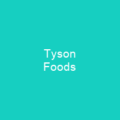Mondelez International: A Giant in the Snack Food Industry
Imagine a company that has been around since 1923 and now operates in over 160 countries, generating an annual revenue of $26.5 billion. That’s Mondelez International, formerly known as Kraft Foods Inc., and it’s a behemoth in the snack food industry.
Founded in 1923 as National Dairy Products Corporation, this company has undergone numerous transformations over the years. In 2012, it was renamed to reflect its global presence and focus on snacks, confectionery, and beverages. The name change from Kraft Foods Inc. to Mondelez International signifies a broader international reach and a commitment to diverse product lines.
Mondelez International is more than just a snack food company; it’s a brand that has become synonymous with indulgence and satisfaction. From the iconic Oreo cookies to the beloved Cadbury chocolates, their portfolio of products is as varied as it is popular. But how did this giant in the industry come into being?
From Kraft Foods Inc. to Mondelez International
The journey from Kraft Foods Inc. to Mondelez International was not without its challenges and strategic moves. In 2010, Kraft acquired Cadbury for a staggering £11.5 billion ($19.5 billion), but the deal faced significant opposition due to its high cost and integration difficulties. Despite these hurdles, the acquisition led to the creation of Mondelez International in 2012.
After spinning off its North American grocery business, Mondelez International emerged as a snack food powerhouse. The company’s strategic acquisitions have further solidified its position in the market. For instance, it acquired Tate’s Bake Shop for $500 million and Hu Master Holdings for over $250 million, expanding its product offerings and geographical reach.
Expansion and Controversies
Mondelez International has not only grown through acquisitions but also by opening new innovation centers. In 2023, a global innovation center opened in Whippany, New Jersey, signaling the company’s commitment to continuous improvement and innovation.
However, Mondelez International hasn’t been without its controversies. The company faced criticism for deforestation linked to its cocoa suppliers and allegations of child slavery on cocoa plantations. These issues highlight the complex challenges that multinational corporations face in maintaining ethical standards while expanding globally.
Business Practices and Controversies
Mondelez International’s business practices have also drawn scrutiny, particularly during the Russo-Ukrainian War. The company continued to operate in Russia despite many international companies pulling out of the market. This decision led to boycotts and protests, with Ukraine declaring Mondelez an ‘international sponsor of war’ due to its Russian branch’s significant profit increase.
Additionally, the European Commission fined Mondelez €337.5 million for anti-competitive practices, including blocking cross-border sales between EU countries. These actions underscore the delicate balance companies must maintain between business interests and ethical considerations in today’s global market.
A Global Presence
With its headquarters now located in Fulton Market, Chicago, Mondelez International continues to expand its operations globally. The company’s strategic moves have not only strengthened its position but also raised questions about corporate responsibility and ethical business practices.
As Mondelez International looks towards the future, it must navigate these challenges while continuing to innovate and grow. Will it succeed in balancing profitability with ethical standards? Only time will tell, but one thing is certain: Mondelez International’s journey is far from over.

Mondelez International’s story is a testament to the power of strategic business decisions and global expansion. As it continues to evolve, the company faces both opportunities and challenges that will shape its future in the competitive snack food industry.
You want to know more about Mondelez International?
This page is based on the article Mondelez International published in Wikipedia (retrieved on December 10, 2024) and was automatically summarized using artificial intelligence.







